In the 1970s and 1980s, when hegemonic stability theory was at its peak, many (but certainly not all) IPE scholars took for granted that states were necessarily the key players in the world economy. It is no surprise, then, that a lot of analytical attention was paid to the most dominant state—the hegemon. We might say that the world has changed since then, although it is probably more accurate to say that there has been a change in the ways in which many scholars and other observers view the world. Whatever the case, one thing is fairly clear: states are not the only significant actors, and even the most powerful of states (i.e., the hegemon) has a limited capacity to influence and shape the global political economy. This is a starting point for post-hegemonic theories (PHTs)—a vague and potentially confusing term. To simplify our terminology, then, we can say that PHTs, most generally, are theories that pay serious attention to actors or entities other than the state.
These other actors include international organizations (or multilateral institutions), international regimes, corporations, nongovernmental organizations, epistemic communities, social movements, and so on. There is also a much stronger emphasis on the nonsecurity or nonmilitary sources of power, especially power in the production and knowledge structures, but also including intangible or intersubjective sources of power such as ideology, culture, norms, and values. Among the many types of actors, one area of particular interest has been multilateral institutions, some of the most prominent of which are the United Nations, the International Monetary Fund (IMF), the World Bank, the World Trade Organization, and the European Union. We might legitimately ask: Aren’t these institutions just proxies for state power, and don’t they simply reflect the interests of states? The short answer is: yes and no. On the one hand, multilateral institutions are unequivocally the product of state action and interests. Even more basically, their membership is comprised entirely of states. In this view, then, there is no reason to focus on the institutions themselves, since they simply do what the states, and especially dominant states, want them to do.
Consider, on this last point, how power is exercised in the IMF: voting power is linked explicitly to financial contributions (called quotas) from member states; the higher a state’s contribution, the more votes it gets (see figure 3.8, “Distribution of IMF Quotas by Income Group”). Quotas, in turn, are based on a member’s relative economic position in the world.5 Even in the United Nations, the most important decisions are left to just five countries—the United States, Russia, China, France, and Great Britain—who all retain permanent seats on the Security Council, and who can exercise veto power on any decision made by the Security Council. From a Marxist perspective, then, we might say that institutions are the tools of the dominant states. (It is important to recognize, however, that not all Marxists would agree with the foregoing statement, since social classes, not states, are the dominant actors.)
On the other hand, once created, multilateral institutions often—although not necessarily—begin to take on a life, and interests, of their own. That is, they begin to operate, at least to some extent, as independent actors in their own right. Thus, while the United States and other rich industrialized countries may have preponderant voting power in the IMF, this does not automatically mean that everything the IMF does reflects U.S. power. Among scholars who focus on multilateral institutions, there is a great deal of debate regarding the autonomy—or lack thereof—on the part of multilateral institutions, but almost all would agree that institutions, at a minimum, serve a vital function as mechanisms for coordination, collaboration, and cooperation at the international level. Whatever the case, institutions are an increasingly important part of the world economy, and an increasingly important reason—many scholars argue—for international stability, in both the economic and political realms. With this in mind, let’s take a closer look at the role of institutions.
The Role of Multilateral Institutions
Theoretically speaking, institutions (and regimes) fit comfortably within the liberal tradition, although institutionalists can be found in a range of theoretical camps within IPE. With this caveat in mind, in the liberal tradition, there has long been an emphasis on pluralism and the potential for cooperation (as opposed to conflict). The key question, from this perspective, has centered on how the interests of multiple actors, including both state and nonstate actors, can be reconciled in a manner that provides stability and mutual benefit to all. Or in simpler terms: How is cooperation possible? Before answering, I should emphasize that liberals and others who focus on institutions must deal with the issue of anarchy, a key concept in international relations theory. Anarchy, most simply, is the absence of overarching political authority within a particular political system, such as the international system today. The existence of anarchy makes cooperation at the international or transnational level very difficult to achieve, since all states are ostensibly sovereign, and therefore of equal standing in the international community. In hegemonic stability theory, this problem is resolved by the existence of a hegemonic state. In some versions of posthegemonic stability theory, by contrast, the problem is resolved through multilateral institutions. So what exactly do these institutions and regimes do?
What Do Institutions Do?
Most generally, international institutions help to create a stronger, more durable basis for trust between and among states (trust can be defined as a belief in reciprocal cooperation—i.e., “If I do x, then you will do y”). Trust is a major component of cooperation. Or, to put the issue in negative terms, we can say that the greatest obstacle to international cooperation is distrust, or the prospect of cheating, by other states. International institutions help to alleviate the problem of distrust by providing a forum in which the intentions of various countries are revealed, and by providing a mechanism for monitoring, reporting, and policing the activities of all participants, and, in some cases, adjudicating disputes. In principle, these functions could be carried out without institutions, but in practice this is extremely difficult to achieve when more than a handful of states are involved. Thus, institutions provide, perhaps, the most (and often only) viable means for effective and efficient trust-building in world politics. In particular, institutions allow for regularized interactions. Regularized interactions raise the level of communication, increase the flow of information, and generally provide a stronger basis for sustained interaction. Institutions can also significantly reduce the likelihood of free-riders. This is true even where there is no effective enforcement mechanism.

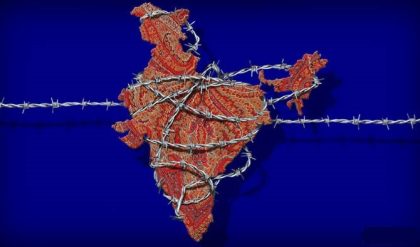
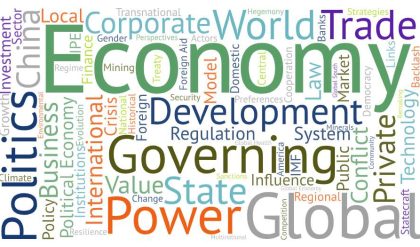
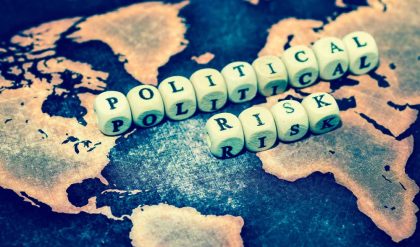
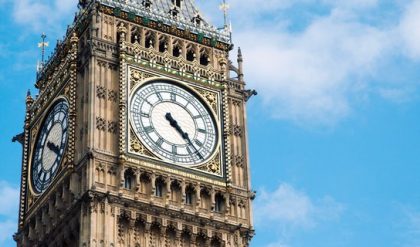
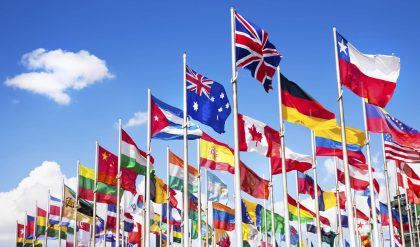
Comments are closed.